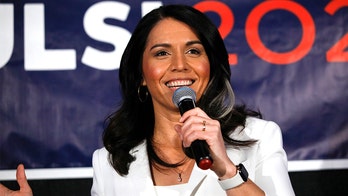Pastor Corey Brooks demands reparations for slain Black residents, inadequate protection, and systemic failures in Chicago, criticizing the mayor's exclusion of liberal policies in his task force.
Chicago Pastor Corey Brooks, founder of Project H.O.O.D., has pointed questions for Mayor Brandon Johnson regarding his reparations task force proposal. Brooks, a long-time resident of Chicago's South Side, challenges the mayor's focus on historic injustices while ignoring the devastating consequences of liberal policies that continue to plague the city's Black communities.
"Where are the reparations for all Blacks killed in shootings in my neighborhood and elsewhere in the city?" asks Brooks. "Where are the reparations for the city's failure to produce adequate protection for its residents?"

Chicago Pastor Challenges Mayor's Reparations Agenda
Brooks highlights the lack of support for community-led initiatives, such as the Leadership and Economic Opportunity Center he is building on the South Side. He believes that addressing current systemic failures, including the city's inadequate educational system and a legal system that prioritizes criminals, is essential to true progress.
Brooks argues that the mayor's task force conveniently overlooks the harmful effects of liberal policies that have undermined Black families, promoted dependency on government assistance, and eroded personal responsibility. He cites evidence from former first lady Michelle Obama, who grew up in a working-class Black neighborhood that has since declined into a struggling housing project.

Chicago Pastor Challenges Mayor's Reparations Agenda
"These liberal policies disincentivized marriage, steered us toward dependency on the government instead of upward mobility, and undermined the virtues of personal responsibility and agency," Brooks asserts. "To our shame, we allowed these policies to make us a shadow of ourselves."
Brooks emphasizes that the reparations argument is not primarily about slavery or segregation but about acknowledging the devastating impact of liberal policies on Black communities. He has witnessed firsthand the toll these policies have taken through attending funerals of young victims of gun violence and providing academic support to underperforming students.
"It's almost like the last 60 years did not exist for Brandon Johnson," Brooks says. "But they did for us."
Brooks believes that returning to traditional American principles, which he calls "white supremacist values" by the mayor's office, is the key to empowering Black communities. He is working to establish a community center where these principles can take root and foster a culture of success among the youth.
Brooks urges the mayor and the city to confront the realities of the present and abandon the "shucking-and-jiving" of liberal gaslighting. He believes that true progress for Black Chicagoans lies in embracing accountability, personal empowerment, and the enduring values that have guided generations past.










